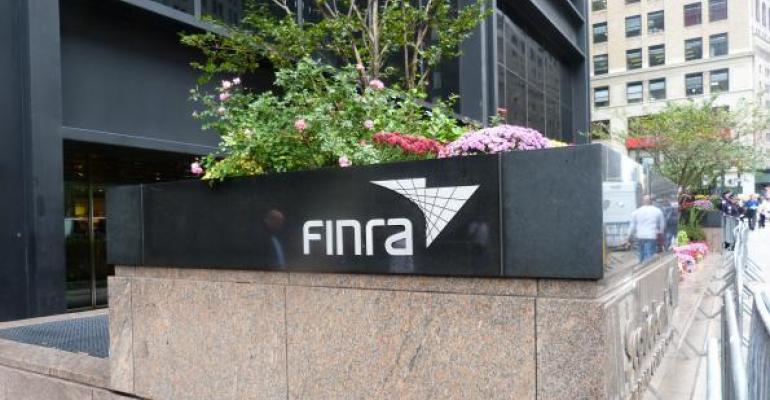A broker facing FINRA disciplinary action failed in his attempt to halt those proceedings in a D.C. circuit court after pointing to an ongoing case broiling in the District’s appeals division that could threaten the regulator’s existence.
FINRA originally claimed Eugene Kim “engaged in unethical conduct, acted in bad faith and misused customer funds” while affiliated with National Securities Corporation (NSC) between Dec. 2017 and June 2019, according to FINRA’s original order (Kim is currently affiliated with Ceros Financial, according to his BrokerCheck profile).
According to FINRA, Kim pushed for a private placement offering in an unnamed company at $9.75 without a source of shares for the offering at any price. NSC approved the offering, and reps began soliciting investors at the price, with clients eventually investing more than $4 million. But before closing on escrow, Kim didn’t source shares for the private placement at any price, but nevertheless moved forward, allegedly pocketing a $16,220 commission.
In the next few months, Kim allegedly misled NSC executives, reps and customers who believed Kim’s fund purchased shares in the company at the stated price. Nearly one year later, Kim purchased a limited number of shares at a significantly higher price, with some investors owning these shares and other clients’ funds not being used to purchase any company shares.
Kim moved to fight FINRA’s enforcement action in court, challenging the organization’s constitutionality in a demand for a jury trial filed in D.C. federal court in August.
“While FINRA claims to be a private corporation with no constitutional responsibilities, it acts as a Congressionally-authorized bounty hunter with statutory authority to enforce federal securities laws against hundreds of thousands of Americans,” his order read.
In his defense, Kim cited the case of Alpine Securities v. FINRA, in which a three-judge panel in the D.C. Appeals Circuit recently put a temporary halt to FINRA’s industry ban of the Salt Lake City-based firm.
In 2019, FINRA charged Alpine with mishandling client funds and charging unreasonable fees, and a FINRA hearing panel expelled the firm from the industry and ordered it pay $2.3 million in restitution in 2022. Regulators later moved to expedite the expulsion, claiming Alpine violated a cease-and-desist order.
Alpine fired back with a suit questioning FINRA’s legal validity, and appeals judges agreed; in a concurrence, Circuit Judge Justin Walker wrote that Alpine’s arguments could hold water, raising “a serious argument that FINRA impermissibly exercises significant executive power.”
Kim argued this Alpine order should “guide the Court’s decision” in his case centered on FINRA’s constitutionality, but the D.C. Circuit Court swatted his argument down, noting that the Alpine order “does not suggest that courts must enjoin every challenged FINRA enforcement action” before the Alpine case is decided.
“Reading the Alpine order as effectively halting all FINRA enforcement actions for now would upend FINRA’s work—a result that would put investors and U.S. securities markets at risk,” District Judge Ana Reyes wrote in an opinion denying Kim’s push for a temporary restraining order on FINRA’s enforcement against him.
Reyes wrote that unlike the Alpine case, Kim didn’t face imminent and immediate risk of the so-called “corporate death penalty,” a phrase Walker used to refer to Alpine’s imminent expulsion.
“The broker is not facing the ‘death penalty,’ he’s facing a fine and enforcement action,” Edwards said about the case. “When deciding whether or not to grant an injunction, they need to decide if a person will be irreparably harmed.”
In this instance, Kim faced the prospect of lengthy enforcement proceedings that wouldn’t result in a ban. Briefing in the Alpine case is scheduled to end Nov. 17, and Reyes argued it was better to wait for that decision to clarify whether Kim’s constitutional claims held merit, instead of stopping FINRA’s enforcement moves against him (Kim’s attorney did not return requests for comment as of press time).
Ben Edwards, a professor at the William S. Boyd School of Law at the University of Nevada, Las Vegas, and a follower of the legal volleys against FINRA, expects more cases from reps trying to overturn FINRA disciplinary actions by questioning the organization’s legality.
“This argument will be tried and tried again until the Supreme Court puts it to rest one way or another,” Edwards said during an interview with WealthManagement.com.
Edwards noted how Reyes’ acknowledged many ‘amicus briefs’ (which can be filed by third parties supporting the merits of one party in a case) in support of FINRA from self-regulatory organizations (SROs), including the Securities Exchanges and the National Futures Association.
Edwards said the rush of briefs suggested SROs coming to understand that they would all “rise and fall together” if a court ruled FINRA unconstitutional. With more plaintiffs likely to push Alpine as precedent, Edwards believed SROs were only going to get better at making their defensive arguments.
“As with anything you do, the more experience you have on the field, the better you’ll be able to play,” he said.
But despite FINRA’s temporary victory here, Edwards cautioned that the SRO still faces a “reconstituted post-Trump era Supreme Court” which he believed was “broadly hostile to administrative regulation.”
In some cases, reps facing scrutiny from FINRA (as well as their attorneys) may not be expecting to win at the trial level, and hope to have more luck at appeals courts (as was the case in the Alpine ruling).
But in either case, Edwards stressed that Kim would not be the last rep attempting to scuttle FINRA’s case for its own constitutionality.
“I expect this to spin out over the next several years,” he said. “It’s going to be a live issue for a long time to come.”





